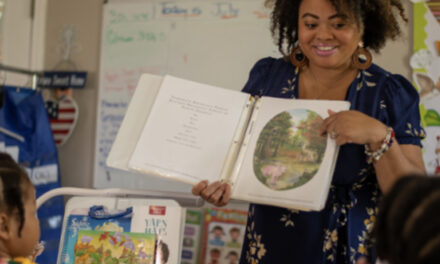Amber D. Dodd
Special to the AFRO
At the bottom of Northeast Washington, D.C.’s hilly terrain, you will find Motherland Kitchen housing Cameroon’s culinary treasures infused with hints of the Caribbean.
With grand success in Frederick, Md., owner, Sabina Jules, is celebrating six months in the nation’s capital at the Ivy City Food Works station, and looks forward to bringing the healthy lifestyle to D.C. residents with tasty spins of her own.
“Some call us ‘Flavorland’ because I believe food is all about herbs,” Jules said. “You can eat and be a vegan and enjoy your food..”
Motherland Kitchen is how Jules embodies her family’s love for cooking. Her mother, aunties and elder sister passed down cooking traditions of the Nso tribe. With her mother’s own passion for cooking, food became a prominent line of income.
“On Saturdays, we would go to the local market, which the equivalent here in America is a farmer’s market,” Jules said. “You took drinks and food there for the full day. She’d sell more during the weekends but, during the week, she’ll be selling from our home.”
Still, Jules attended Cameroon’s top boarding school, Our Lady of Lourdes College Mankon, a Roman Catholic private school established in northwest Cameroon on Oct. 15, 1963. Around this time, Jules entered the kitchen on her own accord, as she cited her cooking days dating back to when he was just 9 years old.
“I figured out that if I could start selling food roadside by frying plantains, making my signature greens and frying fish as people walked by, then I can raise a little money so that when I when we go back to school, I should only worry about paying my fees I’d have money to buy my supplies,” Jules recalled.
In 1982, Jules would eventually leave Cameroon for the University of Pennsylvania where she’d earn a degree in computer science. She returned to Cameroon in 1999, but eventually immigrated back to the States where she spent 20 years as a database administrator throughout the East coast. But eventually, her passion for food would return to her in 2020, when COVID ravaged through communities dealing with health and pre-existing conditions, amplified by poor eating diets and sedentary lifestyles.
“Then I said, ‘Maybe I can start cooking healthy foods and educating people,’” Jules said. “Maybe I’ll have one or two people get away from eating their regular American diet and incorporate things that they would otherwise not even dream of eating.”
In 2021, Jules established Motherland Kitchen’s first location in Frederick. As the community flocked to the fresh African and “Jahica” cuisines, opportunities of service soon followed. Her Cameroonian roots reminded her of the importance of fresh ingredients and meat, occasionally.

“My mom would have to save up to buy meat, therefore we ate it on special occasions like Christmas, New Year’s Easter Sunday because we’re Catholics,” Jules said. “Otherwise, every single day our food was vegan, but guess what? Mighty tasty. We had all the herbs….plus the herbs that come from the rainforests that we are blessed with in Cameroon. I have my own spice business which is called Motherland Spices that are a blend of those herbs that I bring from Africa and buy locally.”
Jules does not trade taste for health, a masterful balance that promotes her goal of showcasing African and Afro-Caribbean cuisines while encouraging customers to eat clean. On Motherland Kitchen’s vegan-vegetarian-gluten-free menu, okra stew, pumpkin seed patties and vegan meatballs made from chickpeas instead of ground meat are a few favorites.
“At Motherland, we have about eight different types of fufu (a ground meal dough),” Jules said. when the customer comes in, I sit down with them to explain the nutrients, and explain the different ones that are super healthy and which ones are high in sugar.”
“Maybe I can start cooking healthy foods and educating people. Maybe I’ll have one or two people get away from eating their regular American diet and incorporate things that would otherwise not even dream of eating.”
Jules’ food IQ is embedded in her culinary genius. Each bite is a different experience. The food is incredibly flavorful while also fulfilling, as Jules navigates the culinary wonderland of African and Afro-Caribbean fare.
The use of creamy coconut milk in jollof rice, for example, pairs well with curry chicken marinated in acidic tomatoes, garlic and other spices.
For those looking for healthier alternatives, removing meat is no issue since the seasoning provides the savory tastes. Motherland Kitchen’s vegan egusi soup, for example, uses the well-marinated, spongy texture of mushrooms to provide the savoriness that meat might offer. Jules prepares the three-greens mix with collard, spinach and turnip or mustards with flavors from onions, herbs and spices.
All around, the vegan substitutions do not miss a beat, giving Motherland Kitchen its reputation of being tasty, healthy and culturally satisfying.
“Every dish has its own blend, the cabbage, rice and beans, jollof rice, my chicken, my oxtails, everything,” Jules said. “My traditional way of cooking and eating has influenced my cuisines today, so my food is very flavorful.”
Jules’ unique culinary fare has opened doors for her business in different market spaces. For instance, Hood College’s Foreign Student Association invited Motherland Kitchen to be an on-campus vendor to provide healthy food options to their student body in a place where, Jules said, food options may not be the healthiest or in close proximity.
“I give them a discount because I get a lot of fulfillment and joy when people eat my food and can feel good because of the work and effort that I’m putting into making the food,” Jules said. “I may be ‘losing money’ but then I’m healing somebody because I’m making sure you don’t need to go to the doctor and get medicine for cholesterol.”
This opened the door to coverage from Frederick’s local paper, The Frederick News-Post, prompting media inquiries and work for Jules’ daughter, Sandra Sendze, who serves as the restaurant’s marketing and communications manager out of Raleigh, N.C. Since partnering, Jules has penned her own articles about the history and nutritional value of fufu in the News-Post.
Sendze says her roles and responsibilities are advertising the magic of her mother’s cooking, how, through original fusions, Jules is “experimenting with creating new foods and cooking out of love.”
“Even when there were no customers, she never stopped. She’s always thinking about how she can get tasty and healthy foods.” Sendze said of her mother. “When they taste our foods people say ‘Oh, I can feel the love, I can feel that the cook put their all into it.’ They’re the best compliments for her because she really put her all into it.”
Today, Jules expressed that Motherland Kitchen’s next goals are to strengthen its branding throughout the D.C. vegan scene.
“Her long term goal is to stand out in the vegan and vegetarian communities of D.C.,” Sendze said.
A vegan edition of Motherland Kitchen’s menu is the next step as the restaurant already has a cookbook for its traditional menu. Though Ivy City Food Works has given Jules a rented space to house Motherland Kitchen, she still wants to return to the intimacy of sit-down eateries.

But, Jules, Sendze and Motherland Kitchen’s returning customers know that they are ahead of their times. To maintain both culture and healthiness is something that transcends both COVID-19 protocols and veganism. Motherland Kitchen speaks to Jules’ ability to bring her Cameroonian lineage with her in all she does, and that itself speaks to Motherland Kitchen’s ability to feed the hungry, satisfy the soul and nourish the body.
“Doing a brick-and-mortar in Washington, D.C, it’s arm-and-a-leg-expensive. is like a stepping stone,” Jules said. “Just give me a couple of years. I’m hoping a godfather comes and says, ‘Oh, wow, I like your concept. I like your food. Why don’t you come out and expose and expand into a brick and mortar a bigger place where more people will be accessible and see you?”
The post Cameroon comes to D.C. through chef Sabina Jules and Motherland Kitchen’s vibrant, fusion menu appeared first on AFRO American Newspapers .











